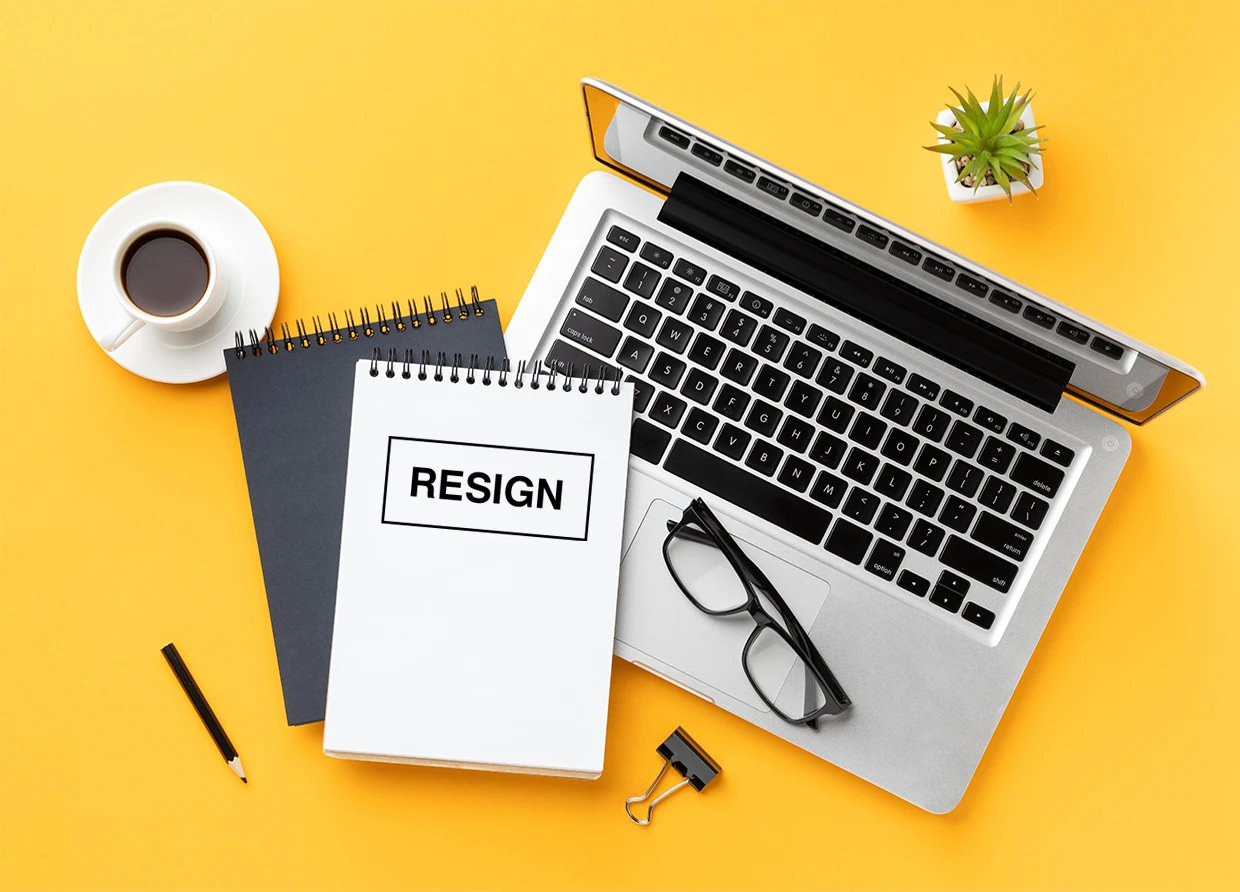THIS IS HOW YOU MAKE AN ETHICAL RESIGNATION EMAIL
Writing a resignation email is not to be taken lightly. Do these things to make sure you leave your workplace on good terms.

Many people believe that there is nothing wrong with pursuing a variety of jobs when you are young. There are many youngsters today who never stay in one company for too long. That's fine as long as you leave the business in a professional manner.
The way you leave your previous job can significantly impact your connection with your new employer and, of course, your coworkers. You can acquire positive references from your boss and coworkers if you leave a strong working relationship. Not to mention that you can retain professional relationships with them that will be beneficial in the future, and you will create lifelong friends.
Many of you may be confused about how to submit your resignation notice ethically. Take a look at the following things you can do to make sure your resignation process went smoothly.
Give an appropriate notice
When quitting a job, it is appropriate to give a month’s notice. If you have an employment contract that specifies how much information you must provide, follow those requirements. Otherwise, unless there are exceptional circumstances, appropriate resignation etiquette is that you give your employer a month’s notice.

Say goodbye to your supervisor and co-workers
Before leaving, you should say goodbye to your co-workers. However, only do it once you’ve informed your supervisor that you’re going. You may say farewell via email or in person, depending on your relationship with your co-workers.
You also have to ensure that you leave it on the best possible note. Taking the time to finalize relationships with supervisors and co-workers will help you preserve positive opinions of your professionalism. Keeping in touch with your soon-to-be former co-workers can help you in the future. You never know when you’ll need to ask for a letter of reference from them.
How to write an appropriate resignation letter
The best way to resign from your job is by sending an email resignation message. Even better, you could tell your boss in person. But if it’s not possible, you could write an appropriate resignation letter and send it through email. Here’s how you can do it.
Make sure your email is polite and professional and includes all the pertinent information related to your resignation. The most important thing, make sure that you give formal notice to your employer. Send your resignation letter a month before the date you’re leaving.
Use a clear subject line in your email. Use a concise email subject line like "Resignation – Your Name." Your employer will understand exactly what your message is about if you do it in this way. You want them to read and open the email right away.
State the date you plan on leaving so that your employer has a clear sense of your timeline.
You are not expected to explain why you are leaving or what you intend to do next. You have the option of giving a brief explanation. For example, you may state you're leaving because of family obligations, a professional change, or a desire to go to graduate school. However, if you're going for another work, you generally don't want to bring it up. Whatever you do, keep your explanation brief and upbeat.

Resignation is an excellent opportunity to express gratitude for your time at the company. However, if you were dissatisfied with the company, do not complain or express any negative feelings in your email. You want to keep a positive relationship with your boss since you never know when you'll run into each other again.
Offer to help the company with the changeover if you are able. For example, you could volunteer to train a new employee during your last days on the job and/or be accessible to answer questions for a week or two after you leave.
This is also an excellent time to ask about remuneration or benefits, such as where or when your last paycheck will arrive. The email should be sent to both your company and the human resources department. Human resources will answer these types of questions.
Include any non-company email addresses or other forms of contact information you'd like to provide with your employer so they can contact you. If you're leaving right away, this is especially important.
Proofread the email before you send it. Of course, you want to catch any grammatical or spelling errors, so proofreading your email before sending it is a good idea. Check that your tone is neutral or friendly and you haven't said anything that might cause you trouble later. You might also have a friend or family member read it over to double-check your tone (and check for any remaining errors).
Ask for a reference
Check with your boss and coworkers to see if they'd be willing to provide you with a reference. If they agree, request that they write a LinkedIn endorsement for you and make themselves available via email or phone. The reference will be added to your LinkedIn profile, which can help you in your job hunt in the future.
#THE S MEDIA #Media Milenial #Resignation Email #Resign Letter



























